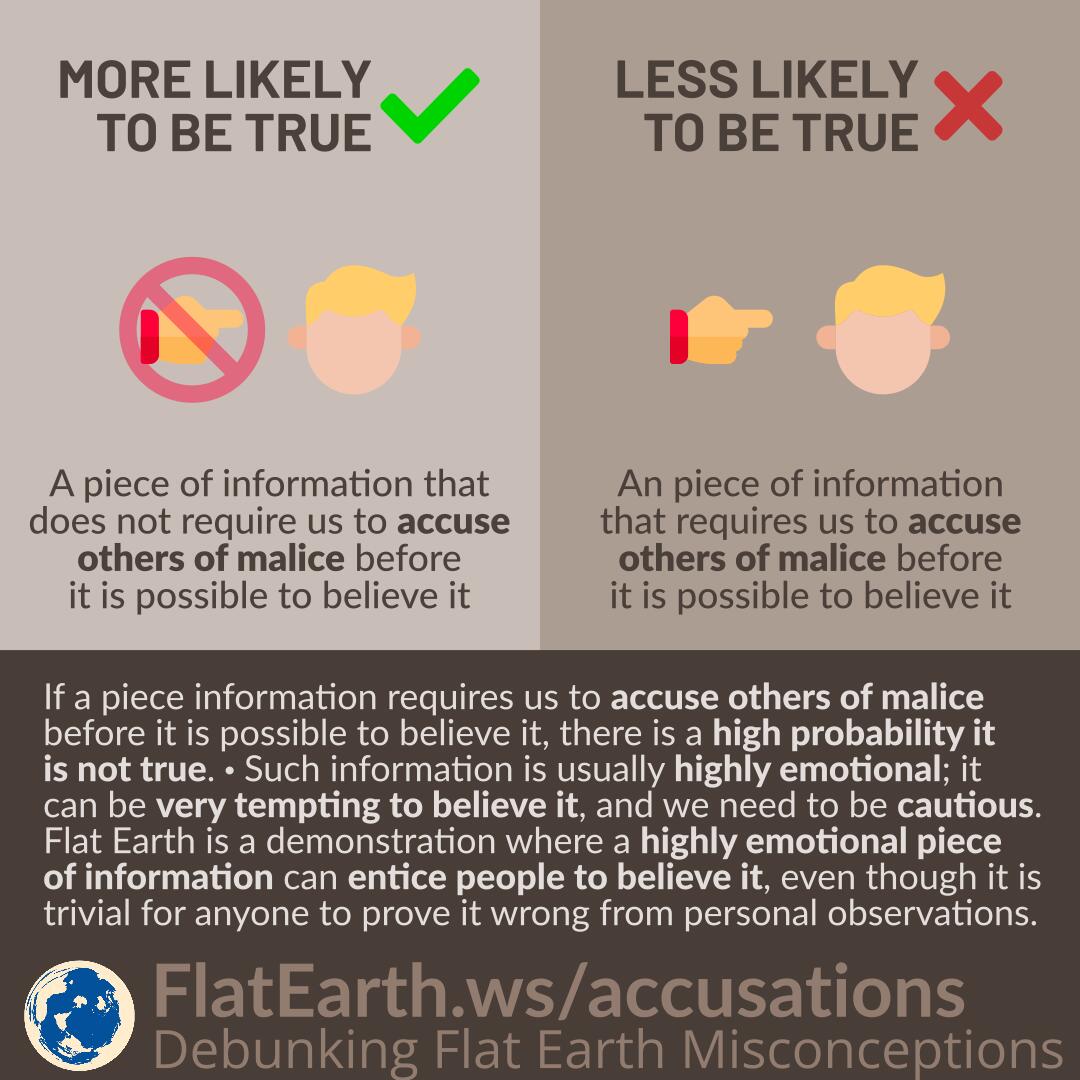If a piece of information requires us to accuse others of malice before it is possible to believe it, then there is a high probability it is not true. Such information is usually highly emotional. It can be very tempting to believe it, and we need to be cautious.
When we receive a piece of information, we need to identify if the information involves accusations of malice to others; and if the information requires us to believe such accusations before it is possible for us to believe the information. If it is the case, we need to be cautious, scrutinize the information, and not be easily tempted to believe it.
From our experience interacting with flat-Earthers, many of them are not aware that by believing a flat Earth, they automatically have accused others of malice. In effect, when they receive the wrong information that Earth is flat, they failed to identify that the information involves accusations to others. They did not realize that they have accused others of malice, but it still made them believe a flat Earth emotionally. Once believing it emotionally, it will be tough for them to accept reality.
Real information about others doing bad things will not be veiled within another information presented more prominently —like that Earth is flat—, but will be presented as the primary information itself.
Flat Earth is a demonstration where such information can tempt others to believe it, even though it is trivial for anyone to prove it wrong from personal observation. By identifying the pattern of flat-Earthers’ behaviors, we can use the knowledge to avoid becoming victims of other conspiracy theories, which all have the same pattern.


